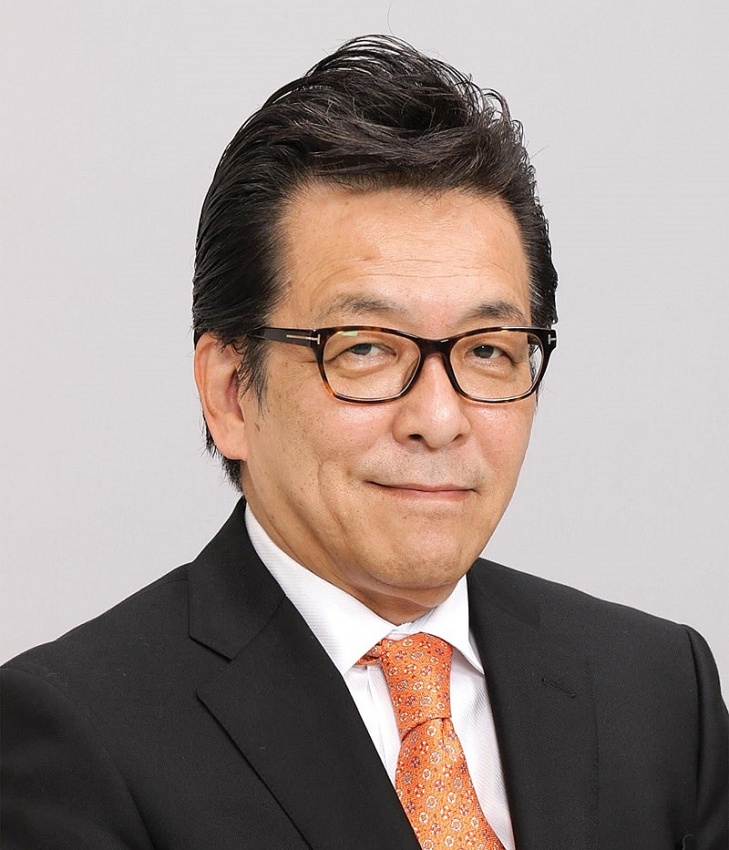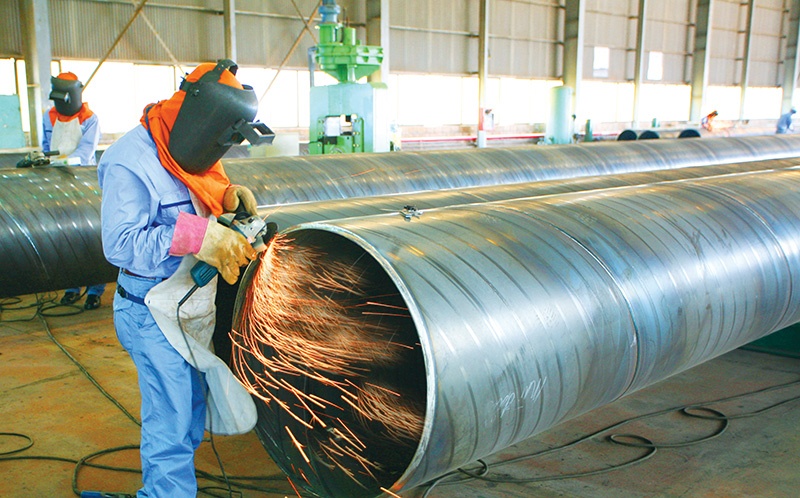Calm preparations suit new prospects for Japanese M&As
Where is Vietnam on the expansion radar of Japanese firms when it comes to mergers and acquisitions (M&A) as the world continues to deal with the pandemic?
 |
| Masataka “Sam” Yoshida, head of the Cross-border Division of RECOF Corporation and CEO of RECOF Vietnam Co., Ltd |
In regards to destinations for outbound M&As from Japan, Vietnam ranked sixth globally, according to RECOF’s M&A database for the January-October period in 2021. Vietnam is second only to Singapore among Southeast Asian countries, and this shows how important Vietnam is for the global expansion strategies of Japanese companies.
Despite the pandemic, many Japanese companies remain interested in investing in Vietnam because it is expected to play a crucial role in the global supply chain. The growth potential of the Vietnamese market is also recognised by many Japanese companies. Therefore, they are anxious to see the country recover from the current issues at the soonest.
Could you shed some light on Japanese M&A activities in Vietnam in this tumultuous period since 2020 began?
According to our database, last year the number of Japanese companies carrying out M&A transactions in Vietnam declined from 15 in the first half to eight in the second half. In 2021, the number recovered to 13 in the first half, which included the record-breaking $1.4 billion investment in VPBank Finance by SMBC Consumer Finance, whose investment amount was more than three times bigger than the total of all announced M&A transaction amounts between the two countries in 2020.
Last year many transactions were affected by the serious pandemic situation in Japan as many companies there became cautious of investments in overseas countries, but this year the pandemic situation in Vietnam also caused some transactions to be delayed or suspended. As a result, it is more likely that the number of transactions this year will be more or less the same as last year, at 23, even though an increasing number of Japanese companies are willing to resume or accelerate their investment activities overseas.
Which industries are seeing the most activity from Japanese parties?
We usually see Japanese investments in a wide range of sectors in Vietnam, but this year the transactions were rather focused on sectors like consumer finance, IT services, food distribution, and renewable energies like solar, wind, and hydropower.
It is noteworthy that two of the three major Japanese financial groups, which are usually relatively cautious investors, coincidentally made entries in the consumer finance business in Vietnam this year, and this should be evidence of their confidence in consumer spending as well as the financial, social, and political situations in Vietnam among other countries in the region.
 |
| Japanese groups have been dipping their toes into areas from the industrial sector and consumer finance to IT and renewable energies. Photo: Le Toan |
As Vietnam is reopening its international borders, do you expect a recovery in Japanese M&A deals in the country in the near future?
The reopening of the borders will surely contribute to the increased investments in Vietnam, as we are aware that Japanese companies are becoming more confident in expanding their overseas investments after the domestic pandemic situation calmed down thanks to the progress in vaccinations. We know many Japanese investors are starting to consider visiting Vietnam in the next few months, which is becoming different from the previous thoughts of “sometime next year”.
Along with international borders, restrictions in travelling between cities and provinces here will hopefully continue to loosen, but we understand the Vietnamese government is currently facing the challenge of restarting economic activities at the same time as keeping the pandemic under control.
Due to social distancing measures, many Vietnamese businesses are struggling or even on the verge of bankruptcy. How do you see Japanese investors helping, and taking advantage of the opportunities in the post-crisis phase?
Some Vietnamese companies are becoming more open to accepting equity investment from foreign partners, but we often hear that the Vietnamese companies are now too busy to deal with the current situation to think much further ahead. On the side of the Japanese investors, they may probably be able to provide capital but they are not able to immediately provide operational support to the Vietnamese partner in trouble.
Japanese companies should be prepared to take the available opportunities quickly because the same opportunities will be available to their competitors from other countries. Japanese companies should also have clear strategies to grow businesses in the new normal in cooperation with the Vietnamese partner.
What are the key trends to accelerate the recovery of Japanese M&A transactions in Vietnam?
Vietnam keeps attracting Japanese companies as a location for production as well as a market for distributing their products and services. They are required to continue investing in building up an efficient and stable global supply chain, and Vietnam is the favourite destination for production activities for many of them. In relation to this, more investments will also be necessary for infrastructure including logistics, IT services, and human resources services, which support the supply chain.
A new trend to add would be the increasing interest in sustainable development goals and the need for developing renewable energy. Vietnam and Japan are among the countries that have committed themselves to achieve carbon neutrality by 2050 at the COP26 held recently in the UK, and close cooperation between the two countries will be important. Some Japanese companies with capital to invest and expertise in this field are already interested in Vietnam with its ample natural resources.
What advice would you give Japanese companies looking to make a deal with a Vietnamese company during the COVID-19 era?
The opportunities will not wait for only the Japanese companies so timing is the key issue, especially in view of the competition among global investors.
While it is not impossible to promote transactions via online meetings and virtual data rooms, the country’s borders are soon to be open, and they should be fully prepared for travelling to Vietnam for in-person negotiation and execution of transactions, if they have not been able to start the transaction process immediately.
As an M&A adviser, what is next in the pipeline for RECOF?
Despite the hurdles of COVID-19 we are busier than ever, probably because more Japanese companies are coming back to us or newly starting to consider transactions, while the execution of the transactions is slow because of various obstacles due to the pandemic, so the deals in the pipeline are accumulating.
We are working on transactions in sectors such as logistics, consumer goods manufacturing, IT services, and real estate-related services, all in line with the growth sectors that Vietnamese and Japanese companies are now focusing on.
What the stars mean:
★ Poor ★ ★ Promising ★★★ Good ★★★★ Very good ★★★★★ Exceptional
Related Contents
Latest News
More News
- BJC to spend $723 million acquiring MM Mega Market Vietnam (January 22, 2026 | 20:29)
- NamiTech raises $4 million in funding (January 20, 2026 | 16:33)
- Livzon subsidiary seeks control of Imexpharm (January 17, 2026 | 15:54)
- Consumer deals drive Vietnam’s M&A rebound in December (January 16, 2026 | 16:08)
- Southeast Asia tech funding rebounds on late-stage deals (January 08, 2026 | 10:35)
- DKSH to acquire Vietnamese healthcare distributor Biomedic (December 24, 2025 | 15:46)
- Central Retail refocuses Vietnam strategy with Nguyen Kim exit (December 24, 2025 | 15:01)
- RongViet Securities wins sixth consecutive M&A advisory award (December 22, 2025 | 17:30)
- Kido Group divests from ice cream and frozen foods (December 18, 2025 | 16:49)
- Insurtech startup Saladin wraps up Series A funding round (December 17, 2025 | 09:10)

 Tag:
Tag:




















 Mobile Version
Mobile Version